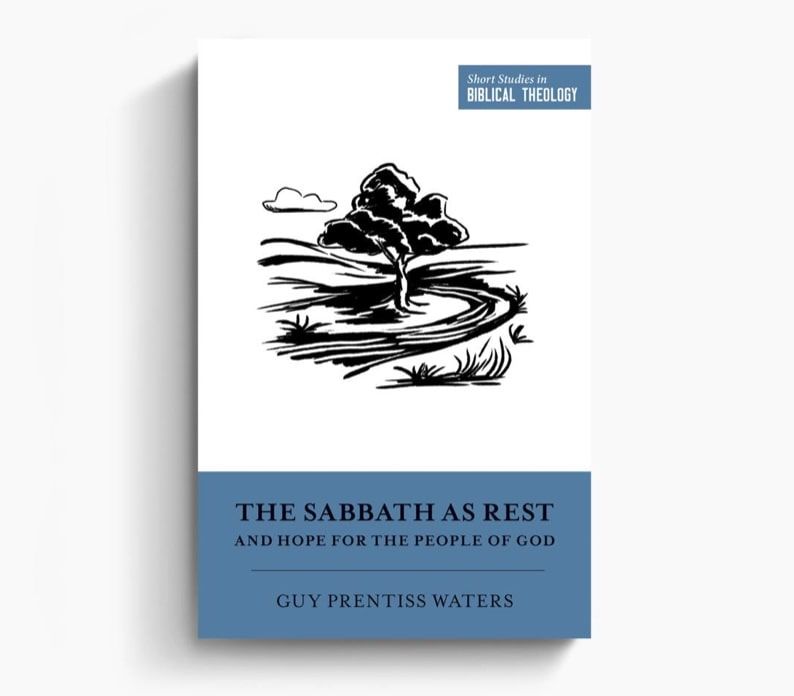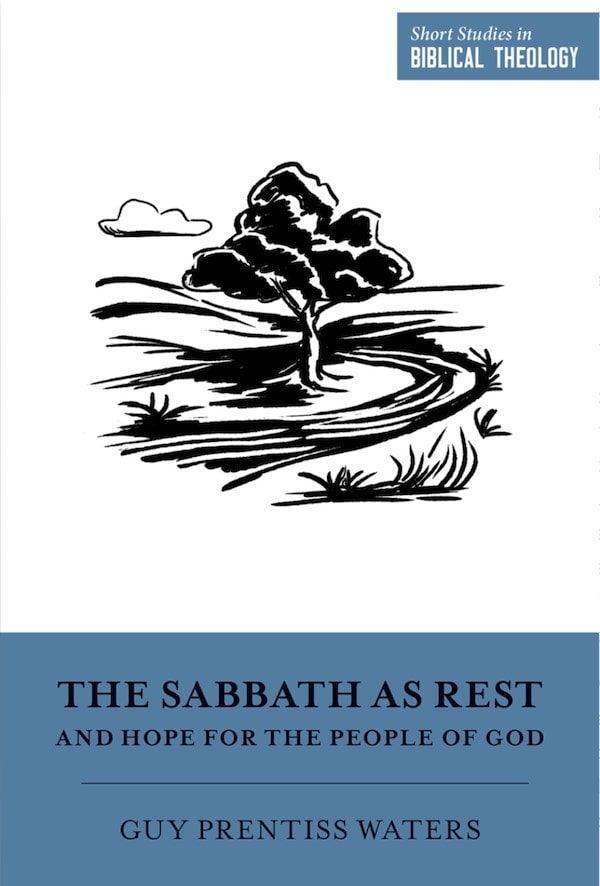The Sabbath As Rest and Hope for the People of God
This is a book review on The Sabbath As Rest by Guy Waters. It is an excellent introductory biblical theology on the Sabbath that I recommend.

The Sabbath As Rest and Hope for the People of God by Guy Prentiss Waters was published in 2022 by Crossway. It is the fifteenth volume to the series entitled Short Studies in Biblical Theology. The series editors want each book to take a whole-Bible theme and trace it through Scripture, making biblical theology accessible to everyday believers.
1. Purpose of The Sabbath As Rest
The author's purpose is the explore what the Bible says "to all human beings about the Sabbath." (p.11) This book is a biblical theology, from Genesis to Revelation, of the Sabbath. The goal is to ultimately help readers understand how Christians and the church should observe the Sabbath today.
2. Content of The Sabbath As Rest
In Chapter 1, Waters reminds readers that the Sabbath is introduced in the creation account in the first two chapters of Genesis. God completed the work of creation in six days, and the seventh day was set aside as a day of rest. God blessed the seventh day for himself and for humanity, and he declared the seventh day as holy (Gen 2:3). Waters argues that God institutes the weekly Sabbath not just for Israel alone (Ex 20:8–11) but for all human beings made in the image of God. "In Christ, we continue to observe the weekly Sabbath as a pointer toward our future rest and a help in our present pilgrimage." (p.31)
In Chapter 2, Waters highlights what the remainder of Genesis through Deuteronomy have to say about the Sabbath. He covers specifically the Sabbath commandment given to Moses at Sinai in Exodus 20 and Deuteronomy 5. He explains how the Sabbath is (1) a sign (Ex 31:17), (2) a sanction, (3) a part of Israel's calendar of worship, and (4) a connection to the covenant blessings and curses attached to the Mosaic covenant.
Chapter 3 surveys the teachings pertinent to the Sabbath in the major prophets of Isaiah, Jeremiah, and Ezekiel. The author also explains how Nehemiah initially led the people of God back to a commitment to Sabbath observance, but that return was short-lived (Neh 13:15–16). And although Israel and Judah violated God's laws on the Sabbath, God still promised a future restoration which will find its fulfillment in Christ.
In Chapter 4, Waters turns to the Gospels in the New Testament and how the Sabbath was a part of the life and ministry of our Lord Jesus. Starting with the synoptic gospels, the author reviews some of Jesus' interactions with the Sabbath through his teachings and his signs and miracles. Jesus, as Lord of the Sabbath, "affirmed the Sabbath as a divine commandment and clarifies its true meaning...He also freed the Sabbath from human traditions and other extralegal additions." (p.96)
In the fifth chapter, the author analyzes what Scripture says about the Sabbath between Jesus' resurrection and Jesus' second coming covering the book of Acts, the epistles, and Revelation. He explains the significance of "the first day of the week" and how the resurrection shifted the Sabbath from the seventh day to the first day. "The Sabbath commomorates God's work of creation, even as it points forward to the rest that awaits the people of God, and the Sabbath commemorates God's work of redemption shadowed in the exodus and accomplished in the death and resurrection of Christ." (p.127)
In the sixth and final chapter, Waters attempts to draw practical application of this biblical theology of the Sabbath to Christians today. He reminds the reader how the Sabbath relates with creation, Christ's redemptive work, and the consummation (end of history). He closes with three principles:
- The Sabbath of the Levitical calendar (shadow) points forward to Christ (substance) and has completed its purpose in redemptive history.
- Regarding the Lord's Day, believers should avoid "extremes of permissiveness on the one hand and of Pharisaism on the other hand." (p.138)
- The Lord's Day offers tremendous benefit to God's people.
3. Commentary of The Sabbath As Rest
At about 160 pages, this biblical survey of the Sabbath is sufficiently meaty for many Christians. But for pastors and theologians, there is not enough discussion on the more important and delicate/controversial biblical passages. For example, besides a couple of brief references, there is no serious discussion about Colossians 2:16–17, perhaps the most cited verses that are used to argue for the Christian's freedom from observing the Sabbath.
The book is easier to read and receive if you already have a similar presbyterian view on the Christian Sabbath. But whether or not you agree with the conclusions of Guy Prentiss Waters that there are binding principles of the Sabbath that apply to Christians today, you should find this book extremely helpful and informative.
The book covers all the major passages of the Bible that speak about the Sabbath. There is a comprehensive Scripture Index if you want to reference the author's specific comments on specific Bible verses or passages.
Furthermore, the final chapter give three steps of application that should be appreciated by all believers.
- Christians should set apart the Lord's Day as a day of worship to God.
- Christians should find ways on the Lord's Day to enjoy Christian fellowship.
- Christians should seek spiritual refreshment on the Lord's Day.
4. Comparison Analysis
For a more in-depth analysis of the theology of the Sabbath from a Reformed Bapist or Covenantal point of view, I would heartily recommend The Christian Sabbath by Robert Paul Martin. Another full treatment on the theology of the Sabbath is D.A. Carson's From Sabbath to Lord's Day: A Biblical, Historical and Theological Investigation. If you want a readable survey of four different view of the Sabbath, look no further than B&H Publishing's Perspectives on the Sabbath.
5. Final Thoughts on The Sabbath As Rest
The Sabbath As Rest and Hope for the People of God is an excellent introductory biblical theology on the Sabbath. It covers the major portions of Scripture from Genesis to Revelation on this topic. Anyone who wishes to explore what the Bible has to say about the Sabbath should consider this book as a helpful resource.

The Sabbath As Rest and Hope for the People of God
by Guy Prentiss Waters | Crossway (2022)




